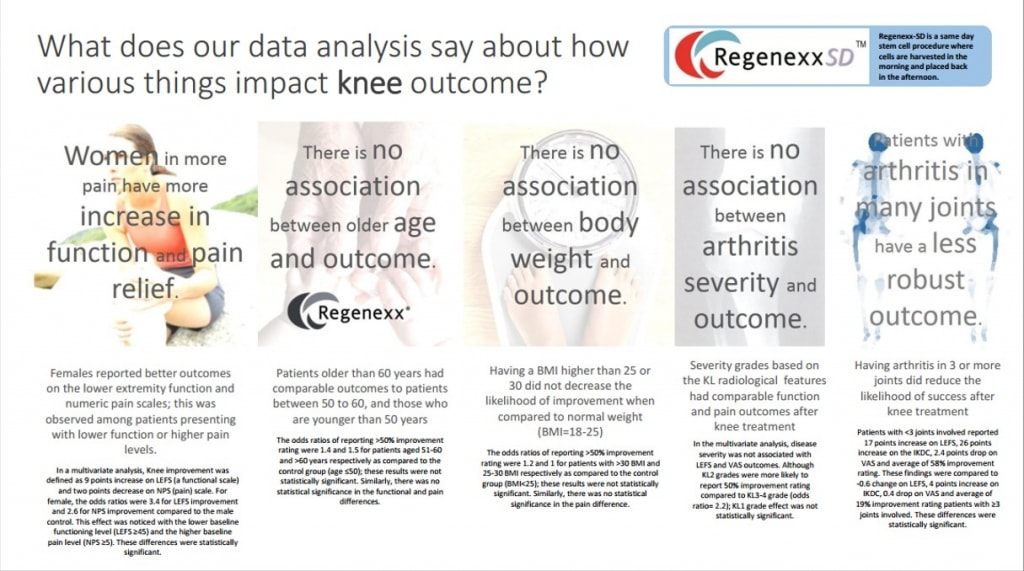Using Big Data for Knee Stem Cell Research
“Big Data” has been all the rage in medicine in this past few years. The idea has both been embraced by and shaken up academic circles. We’ve been a big fan of big data and frequently use it to determine who are the best candidates for our knee stem cell procedure.
The idea that data mining could replace the glacial pace of the traditional randomized controlled trial is a game changer. This means that huge data sets of patients receiving treatments can yield important information and in some instances replace the need for more expensive and slower clinical trials. For knee arthritis, we now have this kind of massive data set, one that has about 1,900 total knee patients treated with various stem cell techniques. Nobody else on earth has this kind of deep data set for stem cell treatments of the knee. We’re also adding many cases to this advanced registry every month.
When we use big data techniques on this massive data set what do we find that can help patients? See the knee stem cell infographic above for the summary, but perhaps one of the most interesting things is that we can still find no association between being older, heavier, or having more severe arthritis and a poor outcome. Why is this a big deal? These things have been shown to impact many traditional surgeries in a negative way. In addition, one thing that does make sense to us is that if you have many joints with arthritis, you won’t do as well with our knee stem cell procedure. Why? There are likely whole body issues (either genetic or chemical) that are causing or facilitating your knee arthritis (i.e. your stem cells aren’t working). Women also do a little bit better than men, but these differences are small.
First, these knee stem cell research findings don’t apply to all stem cell procedures being performed, but only our specific technique known as Regenexx-SD. Second, this type of data is critical in medicine, but no one else has it right now. We’ve called many stem cell clinics and tried to determine if they have any data on which they can base a treatment decision, they do not. Third, why not?
The upshot? Big data is here to stay and Regenexx is the only stem cell network that can offer it to patients. No one else on earth has a database with more treated stem cell patients and our “big data” capabilities grow every day!

If you have questions or comments about this blog post, please email us at [email protected]
NOTE: This blog post provides general information to help the reader better understand regenerative medicine, musculoskeletal health, and related subjects. All content provided in this blog, website, or any linked materials, including text, graphics, images, patient profiles, outcomes, and information, are not intended and should not be considered or used as a substitute for medical advice, diagnosis, or treatment. Please always consult with a professional and certified healthcare provider to discuss if a treatment is right for you.

